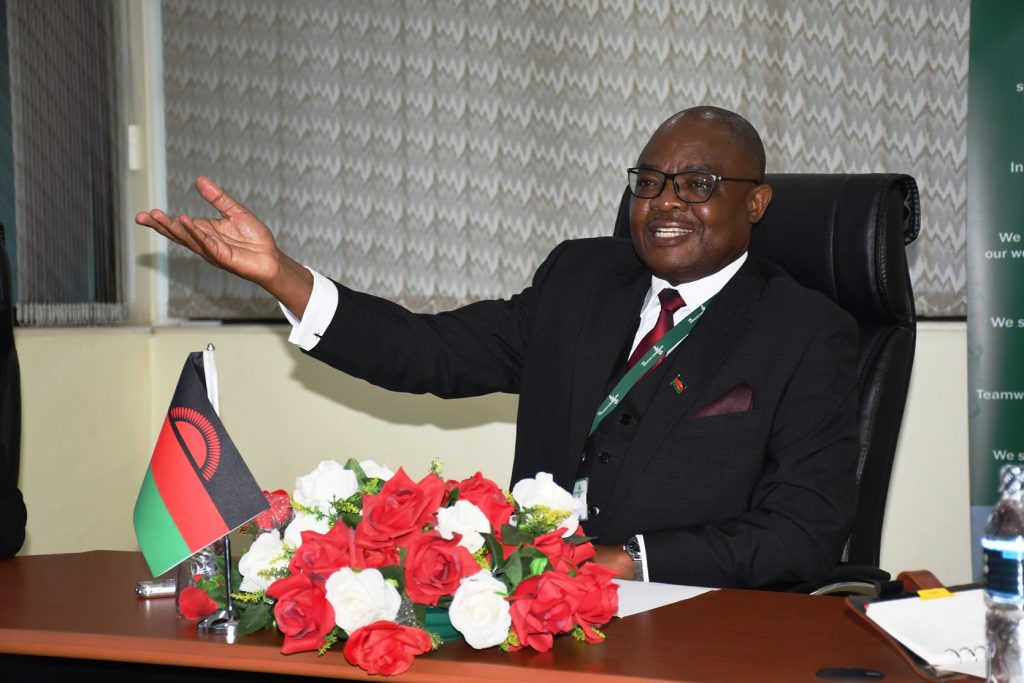By Sylvester Kumwenda
Lilongwe, May 21, Mana: Four weeks after opening, the tobacco market has seen mixed trends compared to the 2019 market in the same period under review.

So far, the market has realized around USD 28 million (approximately MK 20 Billion), which is nine per cent short of revenue generated last year in the same period.
Approximately 18 million kilograms of all types of the crop has been sold which is 19 per cent lower than figures from the initial four weeks of the 2019 market.
There has also been a high rejection rate of around 40 – 50 per cent on the auction market.
However, the market has seen better prices in this period than last year with an average price of USD 1.53 per Kg, which is 13 per cent higher than in 2019 same period.
Tobacco Commission Chief Executive (CEO), Kayisi Sadala told journalists in Lilongwe when he provided an update on what has happened on the market in the four weeks.
He said the mixed trends are as a result of mixed fortunes the market has so far faced.
“The rejection rate on the floors is high because competition is not as high as we had envisioned as most buyers concentrate on securing their contracted tobacco so that they might recoup their loans before participating fully on the auction.
“Initially, it was around 70 – 80 per cent, but now we are averaging 40 – 50 per cent. However, we anticipate reaching acceptable levels of around 20 – 25 per cent,” he said.
He further said another reason is because the new buyer from Zimbabwe (Voedsel) has not yet started buying on the auction because of COVID-19 restriction measures which prevented them to travel to Malawi.
In terms of low tobacco quantity being moved onto the floor, he attributed the development to pandemic preventive measures Tobacco Commission has put in place.
Kaisi said the market has faced some challenges, including concerns from growers who are being prevented from being in the floors when their tobacco is being sold as a measure of observing social distance in the wake of COVID-19.
He said by not being at the market, the farmers are raising fears that they might not be treated fairly.
Sadala, however, said despite the farmers being represented by the growers association, Tobacco Commission is also holding consultations on how best the situation could be improved.
Another challenge has been on the misunderstanding of the new Tobacco ACT.
“The main issue in the new Act is addressing issues of conflict of interest. In the past you could have one person growing tobacco, the same person transporting tobacco and also even being a buyer.
“So, there are also penalties where you have broken the law, and I think it is in that area where some sectors of the industry are not comfortable with,” he said.
On illegal vending, he said it is unfortunate that this malpractice is still there because it disadvantages the real grower, compromises on the quality of tobacco on the floors and generally inconveniences the whole system.
Sadala revealed that six illegal vending individuals have been arrested, two have already been convicted and punished by the courts, two cases are in court and the others are awaiting trial.
“We continue to undertake sensitization measures to ensure that this vice is completely arrested,” said he.
In his remarks, president for Media Network on Tobacco, Alfred Chauwa, said his office has information that some farmers on the contract farming are complaining of high deductions arising from issues that can easily be avoided.
“Imagine some farmers are facing high deductions due to things like buckets and fertilizer sticks.
Fertilizer sticks are sticks that the farmers use to drill holes used to apply fertilizer to the crop and are being part of the contracts the farmers are signing. At the end, they are deducted money for these.
“For example, these could be transported from Lilongwe to give a farmer in Mzimba. Can a farmer fail to find a fertilizer stick or even a bucket on their own? These are some issues that need to be looked into so as to reduce these deductions,” he said.

